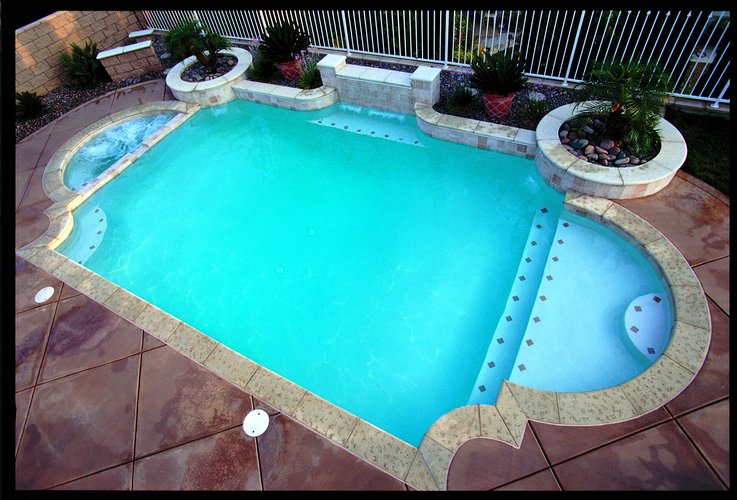Imperial Pools contractors answer fiberglass pool questions, most importantly, what is a fiberglass pool? When it comes to swimming pool construction, one of the biggest items you will need to make a decision on is what material to have your pool constructed from. The decision may rest on your budget and on the benefits and disadvantages of each type of pool construction material.
You will need to decide whether you want:
- Concrete
- Fiberglass
- Vinyl liner
What is a fiberglass pool
Each swimming pool construction material has its own unique pros and cons and it’s up to you to be an informed consumer so the decision you make is best for you.
- Fiberglass pool projects are the quickest of all pool construction projects. Why? Because the fiberglass tub is delivered to your home, set into the excavated hole and viola your pool project is almost complete!
- Fiberglass pools have a tendency to “float.” This may be true if the pool isn’t kept full. It’s never a good idea for a nonprofessional to ever drain a swimming pool as it can move in its excavated hole, float and damage the pool and the plumbing and electrical.
- You have options with the pool shape itself. Advancements in fabrication offer more shape and size options than in the past. One of the main restrictions could be the ability to get the pool into your yard, down the street where you live and down the roads to yoru home.
- The price of a fiberglass pool is middle of the road — it’s less expensive than gunite, but more expensive than vinyl liner.
- Fiberglass pools can easily withstand temperature fluctuations; ideal if you live in an area of the country that sees major temperature changes.
- A fiberglass pool can be installed in as little as two to four weeks.
- Fiberglass pools are not prone to algae growth and require less maintenance.
Explore all of your options before you make your final decision on the material for your swimming pool project.

